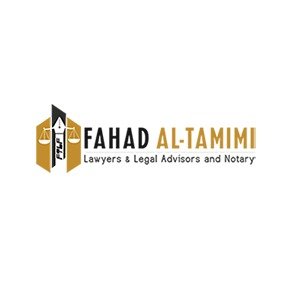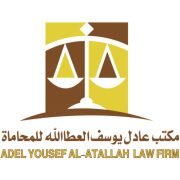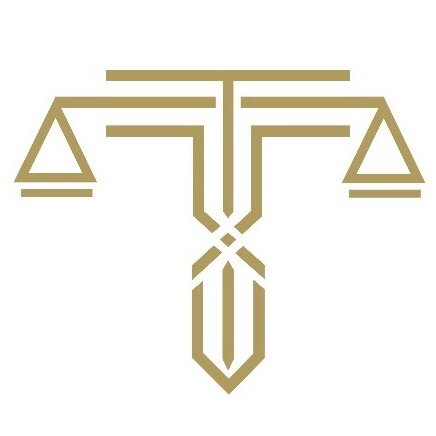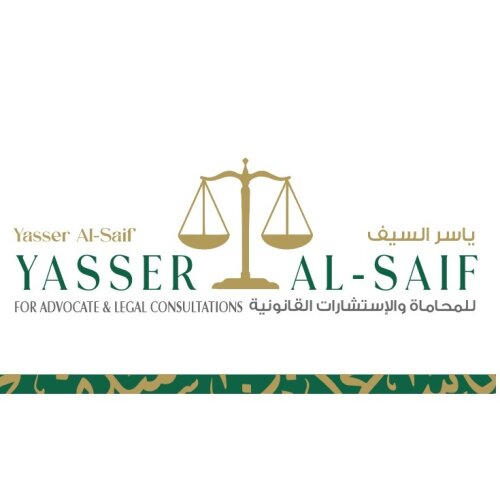Best Project Finance Lawyers in Dammam
Share your needs with us, get contacted by law firms.
Free. Takes 2 min.
List of the best lawyers in Dammam, Saudi Arabia
About Project Finance Law in Dammam, Saudi Arabia
Project finance is a method of raising funds for large-scale infrastructure and industrial projects, often through the creation of a separate legal entity, where repayment is secured primarily by the project's future revenues rather than the sponsor's balance sheet. In Dammam, a major commercial and industrial center in Saudi Arabia, project finance law is influenced by a combination of Sharia principles and local regulations specific to the Kingdom. Project finance plays a critical role in the development of sectors such as oil and gas, petrochemicals, water desalination, transportation, and power projects within Dammam and the wider Eastern Province.
Why You May Need a Lawyer
Seeking legal assistance in project finance matters is essential for several reasons. Project finance transactions involve complex contractual arrangements between multiple parties, which may include lenders, project sponsors, government authorities, contractors, and service providers. Common situations where you may need a lawyer include:
- Drafting and negotiating project and financing agreements
- Structuring Special Purpose Vehicles (SPVs) for project funding
- Ensuring regulatory compliance with Saudi laws and Sharia principles
- Conducting due diligence on assets and contractual risks
- Addressing environmental and permitting issues specific to Dammam
- Handling disputes or defaults during project operation
- Advising on tax implications and government incentives
- Facilitating international involvement and foreign investment compliance
Given the intricacies of the Saudi legal system and the high value of such projects, expert legal guidance is essential to safeguard all parties' interests and ensure the successful completion of the project.
Local Laws Overview
Project finance in Dammam is governed by a mixture of local and national regulations, as well as Islamic law. Some of the most relevant legal considerations include:
- The Foreign Investment Law governs the participation of non-Saudi investors and the activities permitted for foreign companies.
- The Companies Law sets out the legal framework for SPVs and joint ventures often used in project finance.
- Saudi Central Bank (SAMA) regulations oversee lending practices and banking activities by financial institutions involved in project loans.
- Ministry of Energy, Ministry of Investment, and Ministry of Municipal and Rural Affairs regulate sector-specific approvals, particularly in energy, utilities, and infrastructure projects.
- Sharia compliance is required in all financial transactions, influencing the permissible forms of borrowing and security interests.
- Environmental regulations issued locally and nationally must be observed, especially for industrial and energy-related projects.
Each project in Dammam may encounter specific requirements depending on its sector, location, and the parties involved. Understanding these local laws is crucial to successfully navigating the legal aspects of project finance.
Frequently Asked Questions
What is project finance and how does it differ from traditional financing?
Project finance is a funding method where the project's cash flows and assets serve as collateral for the loan, rather than the balance sheet of the sponsors. Traditional financing relies on the creditworthiness of the company or entity, while project finance isolates risk to the project itself.
Are foreign investors allowed to participate in project finance in Dammam?
Yes, foreign investors can participate, provided they comply with the Saudi Foreign Investment Law and obtain the necessary licenses from authorities such as the Ministry of Investment.
What are Special Purpose Vehicles (SPVs) and why are they used?
An SPV is a separate legal entity created to isolate financial risk. In project finance, SPVs own the project assets, enter into project contracts, and raise funds, keeping exposure limited to the individual project.
How does Sharia law impact project finance transactions?
All financial transactions must comply with Sharia principles, which restrict conventional interest (riba) and require contracts to be free from excessive uncertainty (gharar). Islamic finance structures such as sukuk or murabaha are often used.
What types of security can be offered to lenders in Dammam?
Security can include project assets, receivables, assignment of project contracts, and revenue accounts. Mortgages and pledges may be subject to local law and must conform with Sharia principles.
What government approvals are required for project finance in Dammam?
Approvals vary by sector, but may involve licenses or permits from the Ministry of Investment, Ministry of Energy, municipal authorities, and environmental agencies.
What is the typical timeline for closing a project finance deal?
Timelines vary based on the project's size and complexity but typically range from several months to over a year, factoring in negotiation, regulatory approvals, and due diligence.
Can project finance disputes be resolved locally or through international arbitration?
Parties can agree to resolve disputes in Saudi courts or through arbitration. Saudi Arabia recognizes many forms of arbitration, including local and international institutions, provided the arbitration agreement meets certain legal requirements.
What risks should sponsors be aware of in Dammam?
Sponsors should assess regulatory risks, political and market risks, Sharia compliance, currency fluctuation, enforceability of contracts, and construction or operational risks.
Are there any incentives for project finance in Dammam?
The Saudi government may offer incentives such as tax advantages, land grants, and support for strategic projects, particularly in key growth sectors. These should be evaluated as part of the project's legal planning.
Additional Resources
The following organizations and governmental bodies can offer further information and assistance regarding project finance in Dammam:
- Ministry of Investment (MISA) - oversees foreign investment and project licensing
- Saudi Central Bank (SAMA) - regulates financial institutions and lending practices
- Saudi Arabian General Investment Authority (SAGIA) - offers guidance for foreign investors
- Ministry of Energy - key for energy project approvals
- Ministry of Municipal and Rural Affairs - issues local permits and approvals
- Chambers of Commerce and Industry in Dammam - provides networking and local business support
- Local law firms specializing in project finance and Islamic finance structures
Next Steps
If you are considering a project finance transaction in Dammam, the following steps can guide you:
- Clearly define your project and identify key stakeholders and sponsors
- Consult with a qualified law firm that specializes in project finance and understands both Saudi regulations and Sharia law
- Engage experienced financial and technical advisors to help structure and conduct due diligence on your project
- Assess the required licenses, permits, and governmental approvals relevant to your sector and location
- Prepare robust project documentation, including financing agreements, security arrangements, and risk mitigation strategies
- Evaluate the available incentives and support offered by local authorities
- Stay informed about local legal and business developments that may impact your project
Taking these steps with legal support will help you navigate the complexities of project finance in Dammam and position your project for a successful completion.
Lawzana helps you find the best lawyers and law firms in Dammam through a curated and pre-screened list of qualified legal professionals. Our platform offers rankings and detailed profiles of attorneys and law firms, allowing you to compare based on practice areas, including Project Finance, experience, and client feedback.
Each profile includes a description of the firm's areas of practice, client reviews, team members and partners, year of establishment, spoken languages, office locations, contact information, social media presence, and any published articles or resources. Most firms on our platform speak English and are experienced in both local and international legal matters.
Get a quote from top-rated law firms in Dammam, Saudi Arabia — quickly, securely, and without unnecessary hassle.
Disclaimer:
The information provided on this page is for general informational purposes only and does not constitute legal advice. While we strive to ensure the accuracy and relevance of the content, legal information may change over time, and interpretations of the law can vary. You should always consult with a qualified legal professional for advice specific to your situation.
We disclaim all liability for actions taken or not taken based on the content of this page. If you believe any information is incorrect or outdated, please contact us, and we will review and update it where appropriate.















